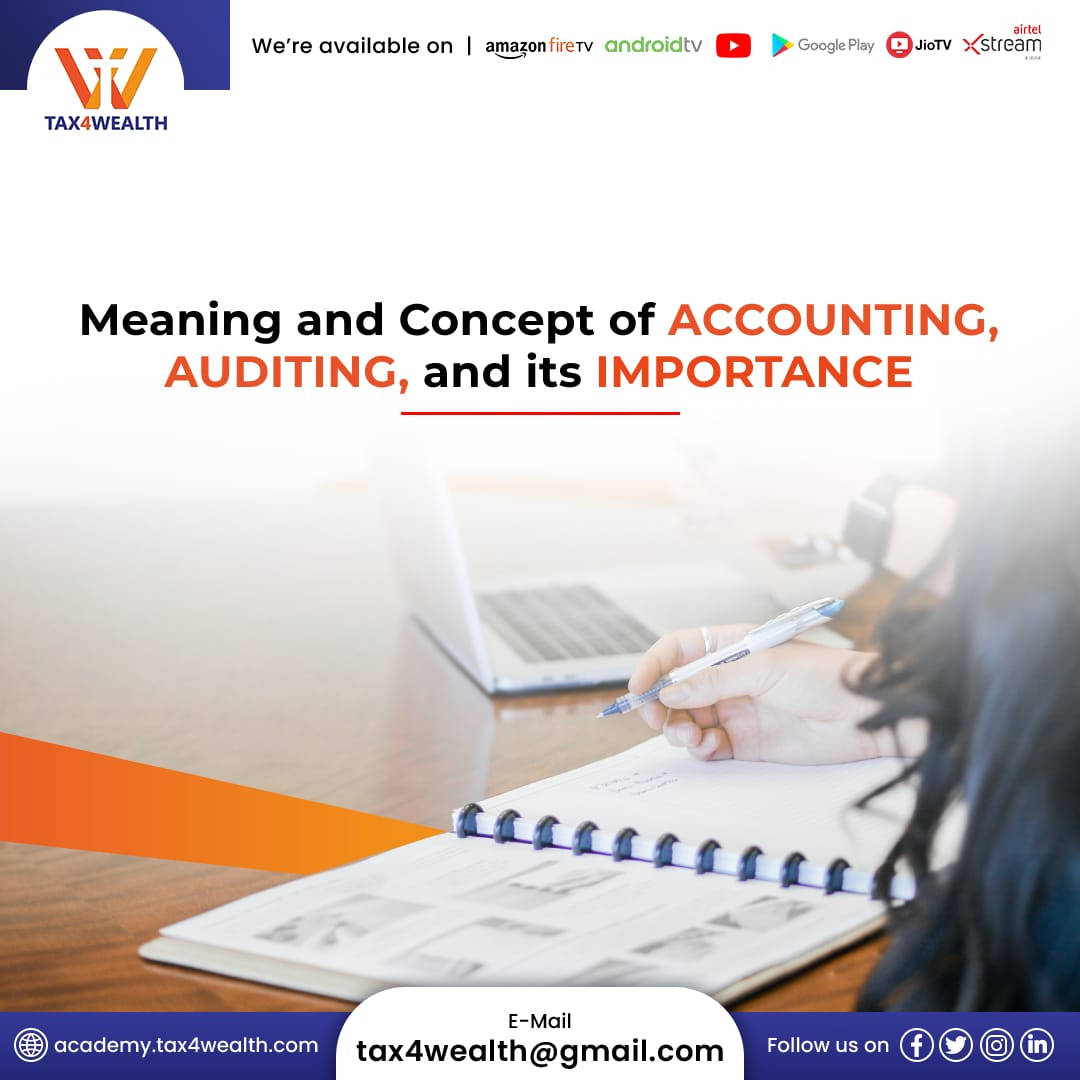
Why Accounting is Important in any Business?
The word "Accounting" is used frequently, especially around tax time. Let's first discuss the definition of accounting before moving on to the Accounting Important in any business. Accounting is the systematic and detailed documentation of a company’s financial transactions. Accounting for small enterprises, government, forensic, and management accounting, as well as accounting for corporations, are all examples.
Why Is Accounting Important?
Accounting is important in any business because it allows you to track income and expenses, maintain statutory compliance, and offer quantitative financial information to investors, management, and the government for use in making business choices.
Your records generate three important financial statements.
1. The income statement contains information on profit and loss.
2. The balance sheet provides a clear picture of your company's financial situation on a specific date.
3. The cash flow statement serves as a link between the income statement and the balance sheet, reporting the cash generated and spent during a certain period.
If you want to keep your business afloat, you must keep your financial records clean and up to date. Here are just a handful of the reasons why it is critical for any size business!
Also, Read; How to Have a Successful Career in Accounting
-
It Helps in Evaluating Business Performance:
Your financial records show your small business or corporation's operational results as well as its financial situation. In other words, they assist you in understanding the financial status of your company. Clean and current records will not only help you keep track of spending, gross margin, and potential debt, but they will also enable you to compare your current data to previous accounting records and allocate your budget accordingly.
-
It Guarantees Statutory Compliance:
Laws and regulations differ from state to state, but effective accounting systems and processes will assist you in ensuring statutory compliance in your firm.
Accounting will ensure that liabilities like sales tax, VAT, income tax, and pension funds, to name a few, are dealt with effectively.
-
It Aids in the Creation of Budgets and Future Projections:
Budgeting and future estimates can make or break a firm, and your financial records will be critical in this regard.
To make your operations profitable, business trends and estimates are based on previous financial data. This financial information is most useful when it is provided by well-structured accounting processes.
-
It Helps in the Filing of Financial Statements:
Financial statements for corporations must be submitted to the Registrar of Companies. Listed companies are required to file for direct and indirect taxes, as well as with stock exchanges. Accounting is essential in each of these situations.
What is Accounting's Purpose?
Accounting is the process of recording, analyzing, and transmitting financial data within and about a company. It is known as the "business language" for this reason. Financial data about a company influences decision-making.
Academy Tax4wealth offers excellent practical accounting training utilizing authentic business papers under the direction of licensed accountants. For students after grade 10, our Certified Corporate Accountant Course comes with a 100% job guarantee. We have a sizable team of certified auditors and accountants. Our Job Guaranteed Courses are geared to prepare you for the workforce. Every training session is one-on-one and hands-on. Working on Real Company Files will be your responsibility while being supervised by Qualified Chartered Accountants.
Accounting's primary goals are as follows:
Transaction recording:
At its most basic, financial accounting is the documenting of a company's transactions. This daily recording method serves as the foundation for the complete financial accounting system. When transactions are logged, you can look them up and receive information about them anytime you need it. To see trends, you may quickly compare current data to historical data. Financial accounting allows us to evaluate and measure a company's performance over time.
Planning and budgeting:
To fund their operations, most small enterprises use a limited number of resources. Planning and budgeting are required to accurately estimate the resources that the organization will require. Budgeting and planning are led by financial transaction records that can be utilized to project and forecast future trends. Financial accounting assists management in planning ahead of time and allocating resources appropriately for the near and long term.
Also, Read; Job Guaranteed Courses in Accounting-2023
Making a decision:
Financial accounting records aid in decision-making at all organizational levels. Every level of management makes judgments based on financial data about their area of operations. These choices could be as straightforward as deciding which supplier is the most cost-effective. Managers utilize these reports to improve the efficiency and profitability of their businesses. Financial accounting reports could also be utilized to make big decisions like expanding the company's operations to another location. Accurate reporting also aids management in avoiding losses and mismanagement.
Business efficiency:
Financial accounting reports assess and measure a company's success and failure in monetary terms. Business owners can determine how much profit or loss their company has made over time. Key performance indicators (KPIs) can assess several areas of a company's performance. These KPIs can be evaluated over time to examine the business's prior performance. It can also be used to compare businesses to one another. Regular report monitoring assists the business owner in identifying bottlenecks and potential problems and addressing them before they become larger issues.
Financial Situation:
Owners, shareholders, investors, and lenders are all interested in a company's financial status. Financial accounting reports reveal a company's exact financial situation. These reports inform the business owner or shareholder of the amount of money invested in the company, its assets and liabilities, profit and loss, and cash flows. It also makes correct reporting of a company's financial information to the government, tax, and other regulatory bodies easier.
Liquidity:
Problems with cash flow management are a major factor in small business failure. When you are concentrated on the routine business activities of your firm, it may be easy to lose sight of the bigger picture. Examining your financial accounting records will help you figure out how much liquidity you have. It will also inform you of your debt obligations, including your outstanding balance. By using this information to manage your responsibilities, you can reduce your risk of filing for bankruptcy or experiencing a financial emergency.
Related News
No comments yet, Be the first to comment.













